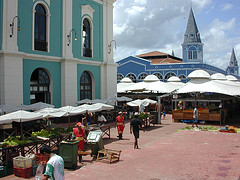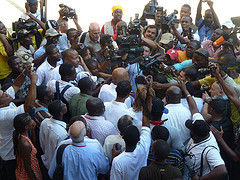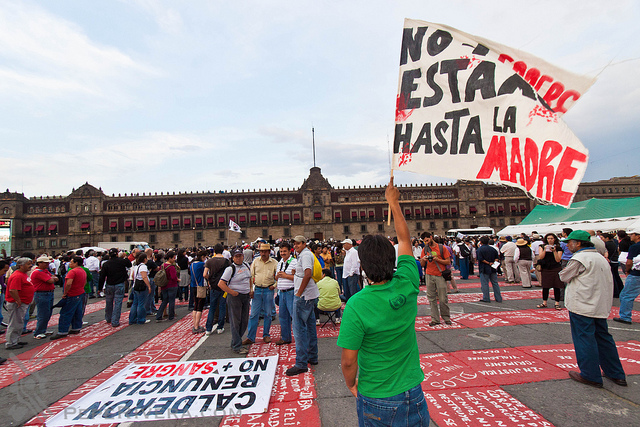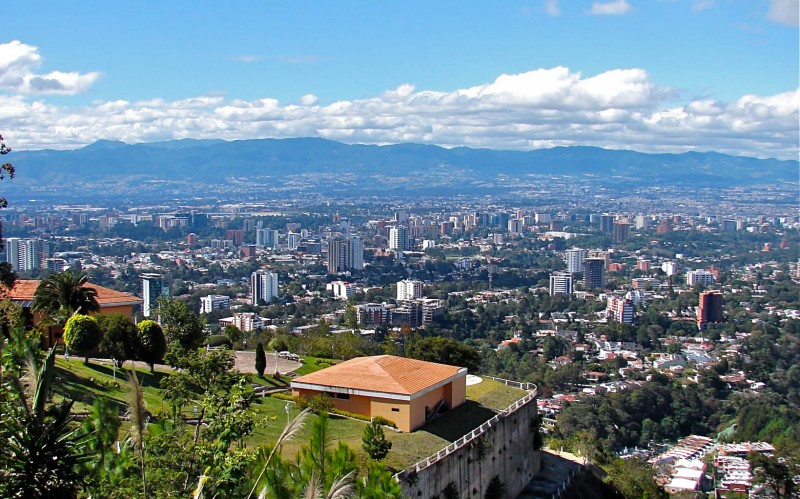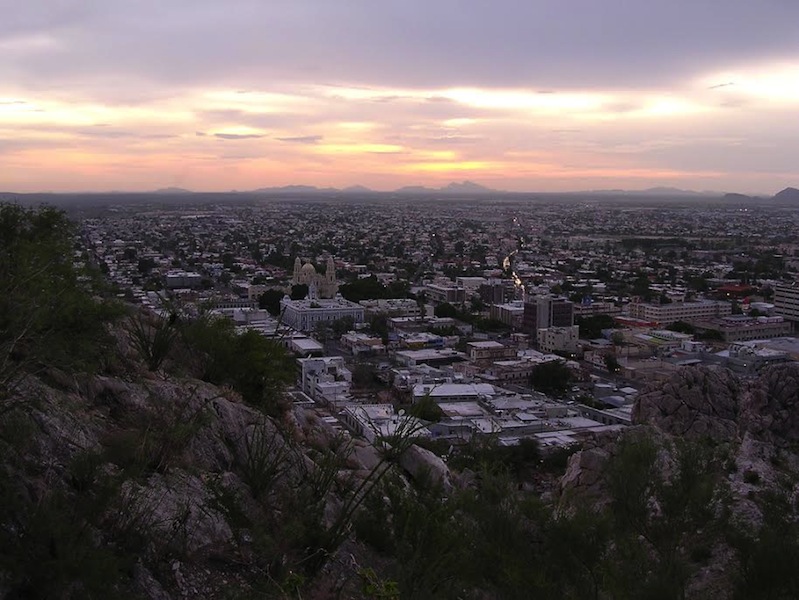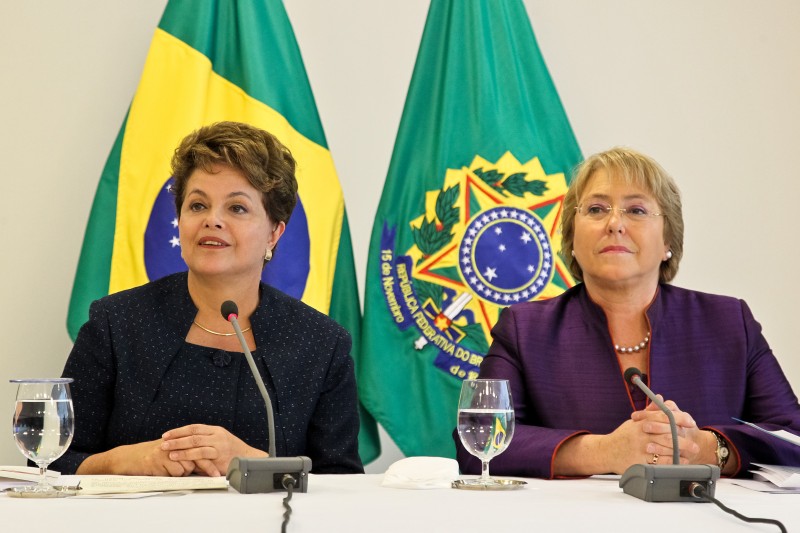
Brazil, Chile, Latin America: Week in Review, Southern Cone
Ratings Plunge for Brazil, Chile Leaders
April 2, 2015 By Staff
Top Story — The leaders of Brazil and Chile are facing their lowest approval ratings yet, a phenomenon owed to some combination of economic stagnation, political scandals and natural disasters, according to the results of two polls released Wednesday.
Just 12 percent of respondents to a Brazilian poll said President Dilma Rousseff was doing a “good” or “great” job, Reuters reported. Her economic austerity programs — including a rise in interest rates and taxes in an effort to resolve a federal budget deficit — have the approval of approximately 10 percent of the population.
Chile’s President Michelle Bachelet has found her approval ratings drop to 31 percent, an eight-point decrease since a poll in February, according to a separate report by Reuters. Bachelet’s government has been criticized for its handling of the response to several natural disasters: a volcano, forest fires, droughts and deadly flooding in the northern Atacama desert region.
Rousseff, too, has been dogged by accusations she is not doing enough to address a historic drought in São Paulo, Brazil’s economic powerhouse and South America’s largest city.
Both leaders have also suffered through political scandals. Officials from Rousseff’s Workers’ Party have been linked to a massive kickbacks scheme at the state oil firm, while Bachelet has faced questions over her daughter-in-law’s apparent privileged access to a loan.
Overall, 2015 has seen setbacks for left-leaning heads of state across South America as a general downward trend in global commodity prices has reverberated in the region’s economies. Violent protests have returned to Venezuela, where some protesters call for the resignation of President Nicolás Maduro. Even Evo Morales, freshly re-elected to a third term and a second decade as president, has recently found his party’s influence reduced in regional elections.
Just Published at the Latin America News Dispatch
- Nearly 800 Guatemalans filed a lawsuit Wednesday in the U.S. city of Baltimore against Johns Hopkins University, drugmaker Bristol-Myers Squibb and The Rockefeller Foundation over their alleged roles in experiments that intentionally exposed Guatemalan subjects to sexually transmitted diseases in the 1940s and 1950s. Read more in our latest report from Latin America News Dispatch editor Dusty Christensen.
Headlines from the Western Hemisphere
North America
- An enormous fire at an oil platform of Mexican state-run oil company Pemex left four dead and 16 injured, forcing the evacuation of over 300 as firefighters attempted to put out the flames feeding off the oil on the platform.
- Some family members of the 43 missing students from Mexico’s Guerrero state have appealed to the leader of a drug cartel to help locate their children, saying they lack confidence in the government after months of dead-end investigations.
- U.S. bondholders offered to invest $2 billion in Puerto Rico in order to help improve its economy and energy infrastructure as fears mount that the country’s power company will go bankrupt.
Caribbean
- As relations between the United States and Cuba improve, issues of lands, homes and businesses once owned by Americans but confiscated shortly after the Cuban Revolution will have to be resolved, according to an article by The Associated Press, which interviews Cuban families currently living in former American homes.
- A man threw a “suspicious package” over the wall of the U.S. Embassy in Jamaica Wednesday morning, according to officials — just over a week before U.S. President Barack Obama is set to visit the island — though the man has since been detained and armed Jamaican soldiers and police are now guarding the embassy.
Central America
- Costa Rica has begun repairs on Isla Portillos, a small contested island between Costa Rica and Nicaragua, according to a statement from Costa Rica’s foreign minister, who says that Nicaraguan ships have been damaging the island’s canals.
Andes
- At a time when food and household essentials are increasingly scare in recession-hit Venezuela, Mery Mogollon of the Los Angeles Times reports on the Bachaqueros — “the new protagonists in Venezuelans’ daily drama of buying food and medical essentials” — who procure the few items available at public and private outlets to re-sell at a premium through social media.
- Bolivian Defense Minister Jorge Ledezma was fired on Tuesday for wearing a vest that controversially stated “El mar es de Bolivia” (“The sea belongs to Bolivia”) — a reference to a highly contested parcel of coastline lost to Chile in the 1800’s — while delivering drinking water to a Chilean town that has been devastated by recent floods.
Southern Cone
- The Vatican has announced that the sainthood process for late Brazilian Archbishop Dom Hélder Câmara, a champion of the poor known in his time as the “bishop of the slums,” has been given the green-light; meanwhile, ultra-traditional Catholic members of a diocese in southeastern Brazil have publicly disavowed Pope Francis and the recent, progressive reform proposals made by the Catholic church.
- The state-owned China Development Bank has pledged $3.5 billion to the partially state-run Brazilian oil giant Petrobras, the latter having suffered a severe drop in valuation due to revelations over many months in the Brazilian press of a corruption scheme that benefited the country’s ruling Workers’ Party and depleted the company’s coffers of several billion dollars.
- A member of Chilean President Michelle Bachelet’s family was piloting a helicopter with three people aboard that has been missing since Tuesday night after leaving to conduct rescue missions after rains and heavy flooding in Chile’s Atacama region.

